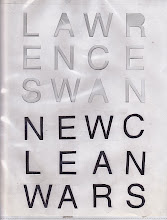The city is the soul writ large
the city is the cosmos writ small
The city is a transmigrant soul
cycling through cycles, circles and spirals
evolving and revolving through the generations and regenerations
the tragedies and farces of history
Our cities will be training grounds, the farcical dictator says
Chicago, Portland, Memphis, Philadelphia, New York
are training grounds
What are we training for?
What uncivil war?
The real war is invisible the real war is in the soul and the city is the soul writ large
The enemy is coming with guns and tanks and boots on the ground
AI bomber shitzkriegs and crypto currency scams
nationalist idols and corporate control
While Mammon eats at the law like a brain worm feasting on a lunatic
pardoning the guilty and incarcerating the innocent
Bulldozing the People’s House to build a big ballroom for the naked king’s big ugly balls
I watch the political theater on my screen unsure of what it means or what matters
I watch ICE agents brutalize people in their homes
I see millions take to the streets to shout NO KINGS
and take to voting booths to vote YES DEMOCRACY
Greetings from the democratic socialist republic of New York.
I see Lady Liberty on Canal Street giving the finger to fascism,
enlightening the world.
Let those who are without guilt throw the first sandwich.
Don J in Hell
The movie ends with the White House in flames and the President on the roof.
Like Cagney in White Heat.
Top of the world, Ma!
He was trying to burn the Epstein files in the Oval Office but goofed and spilled the lighter fluid the fire spread
This is not a good ending, not morally good
Maybe a good ending but a bad end
Conflict between moral goodness and a good story. Poets vs philosophers in Plato’s Republic, Homer vs Pythagoras
Poets make the gods look as bad as us, but ultimate reality is Good
Even the Biblical poets sometimes project a wrathful deity
I want justice for my enemy and mercy for me
Lord have mercy
I need to believe that even a malignant narcissist is redeemable even if I don’t want to believe it
Because I need to believe that even I am redeemable
I need to believe our nation is redeemable
The biblical teaching is that a holy land is redeemable no matter how far it strays
Even Nineveh was redeemable, to Jonah’s chagrin, so America must be also.
The President is concerned about the afterlife, he said
thinking about mortality, he says
We laugh at him because he doubts he will get to heaven
Not that we are certain about ourselves
Not getting invited to Dick Cheney’s funeral is the best news to happen to him this month.
He bombs boats in the Caribbean but hasn’t yet started a real war, but there is time
Cheney started real wars, Big Time.
Big Time was Dubya’s nickname for Cheney
The President has his own wars and we all live inside his head
He strips protections for the endangered human species
As the world burns
There is time, perhaps, to negotiate which circle of the Inferno he will be assigned to.
How many millions of reincarnations will it take for him to recognize that the wrathful deities that torment him are projections of his ugly soul?
He needs to believe his lawyers can work out his karma for him or at least delay for an eternity his appearance before the Judgment Seat
He sits in the holding cell
Since the beginning of Time he has been sitting in this holding cell
What are you doing here?
Isn’t there some other place you should be? Something you could be doing?
There seems to have been a mistake, you say. I was supposed to be happy by now. I have everything I want but I don’t have time.
Then I will ask you another question
What are you doing now?
Wasn’t there something you should’ve been doing back then, when you were young?
Can wasted time be recycled?
Can a wasted life be redeemed?
Is America going to Hell?










